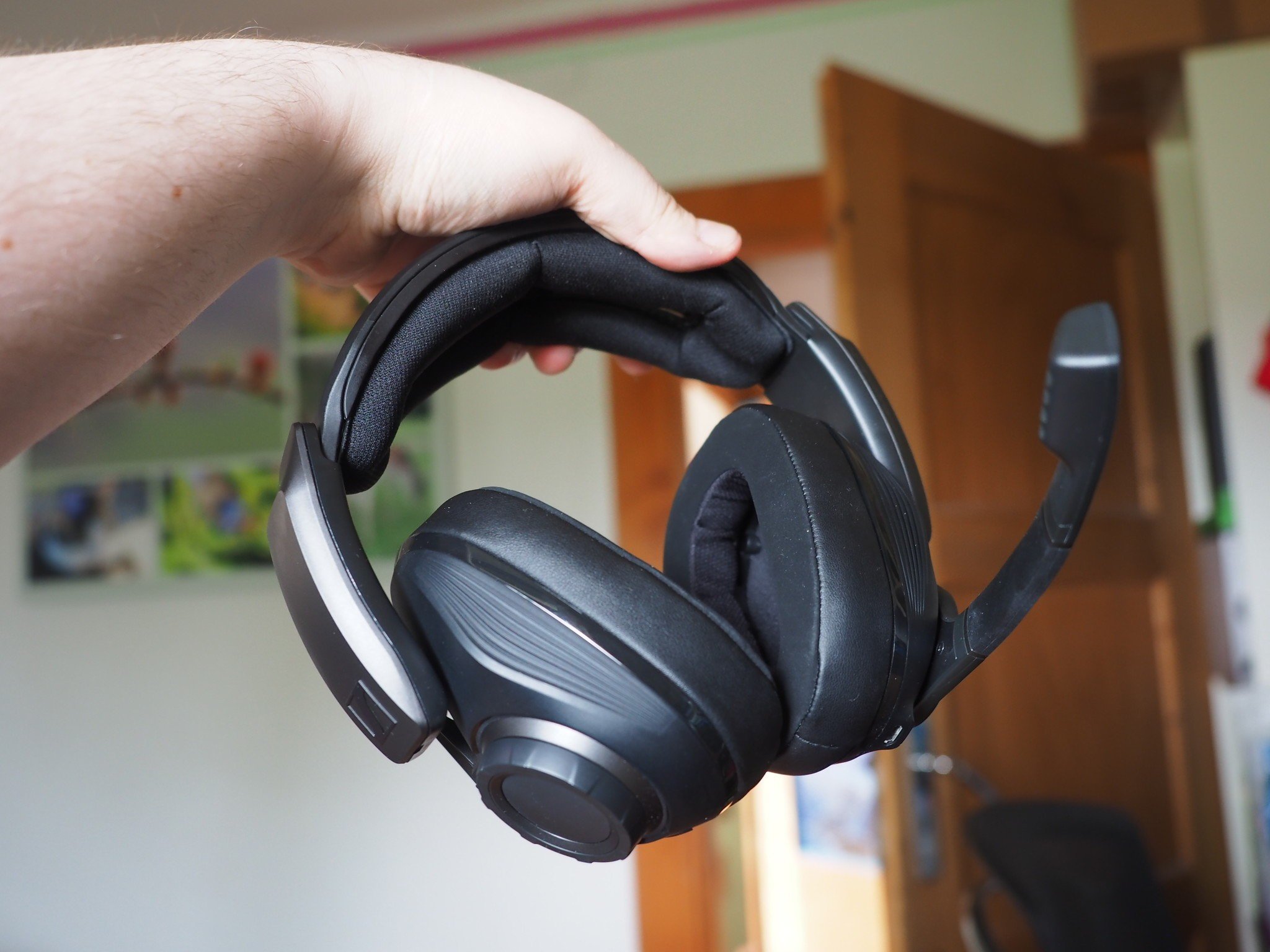Sennheiser has decades of experience under its belt, as one of the biggest and most well-known audio brands. The company increased its foray into gaming products over the years, culminating in the GSP 670, a wireless behemoth that boasts a similarly beastly price: $350. The cost makes it even more expensive than the wireless Astro A50, which comes complete with its own charging dock and console compatibility and is widely regarded as best-in-class for wireless gaming audio.
So, is this $350 headset really worth it? Let's go ears-on.
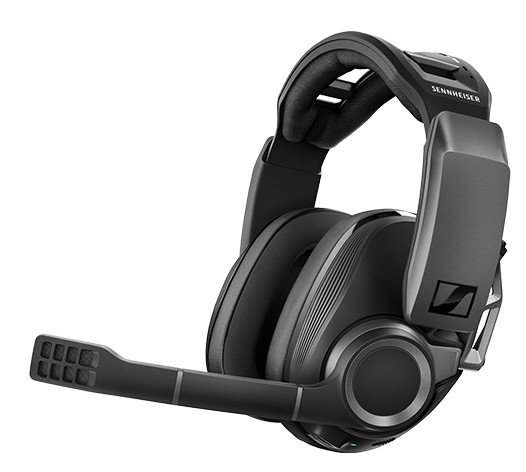
$350Bottom line: This has some of the best, and most versatile audio, I've ever experienced. However, it is grossly overpriced given the sub-par build quality.
For
- Amazing sound
- Excellent mic
- Great software and features
- Leading 7.1 headset experience
Against
- Sub-par construction
- Very bulky
- Not the most comfortable
- no Xbox compatibility
What you'll love about the Sennheiser GSP 670
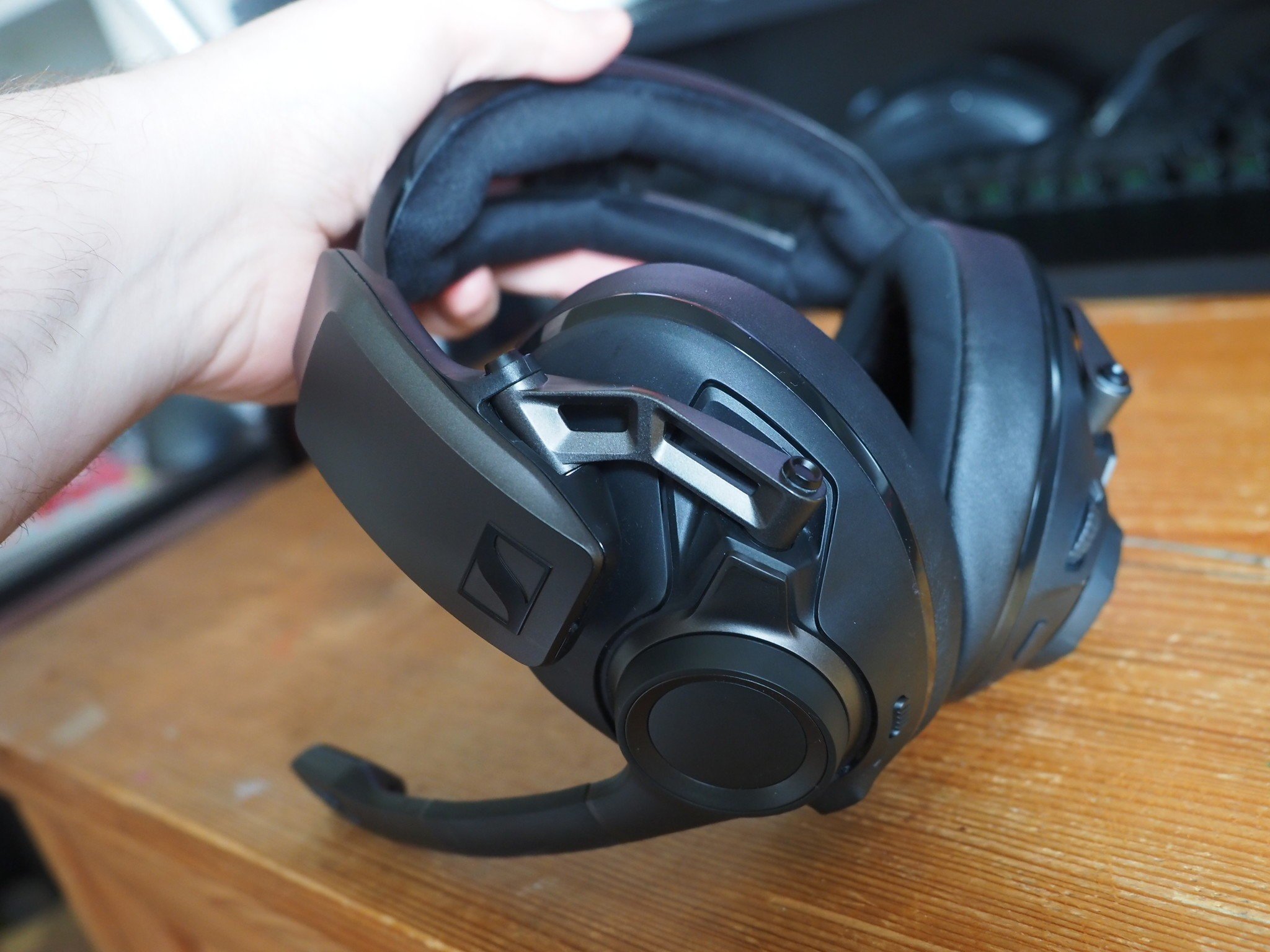
The Sennheiser GSP 670 is quite a unique-looking product, with loud aesthetics that look awesome. The tradeoff is that it's a tad bulky, but in exchange you'll get an aggressively isolating experience that protects you from unwanted outside noise and bystanders from your audio. And boy, does this thing get loud, at a listed 112 dB maximum sound pressure.
| Sennheiser GSP 670 Specs |
|---|
| Frequency response | 10 to 23,000 Hz |
| Design | Wireless, closed-back |
| Weight | 398g |
| Battery life | 16 to 20 Hours |
| Max sound pressure | 112 dB |
| Wireless range | 10 meters |
| Compatibility | PC, PlayStation 4, mobile via Bluetooth |
| Price | $350 |
The GSP 670 is easily the best sound experience I've ever had from the dozens and dozens of headsets I've reviewed here on Windows Central. The 7.1 provision is cavernous, providing a sense of positional awareness and depth like no other headset I've previously used. Rocking these with Metro Exodus was simply sublime, with crystalline clarity and richness across the entire audio spectrum. I cannot praise the audio experience on this product enough.
The GSP 670 delivers the best sound experience we've ever seen in a gaming headset.
Gaming headsets tend to skew towards highs for tactical awareness, for footsteps, enemy reload sound effects, gunfire, and that sort of thing. The GSP 670 makes no such compromise, isolating the highs without sacrificing any of the sweeping bass, ultimately lending itself amazingly well to music and movies. Using these cans for bass-heavy bands like Portishead was utterly incredible, adding whole new dimensions to music I thought I knew very well.
The GSP 670 also benefits from Sennheiser's highly-configurable Windows software, which lets you finetune various aspects of the experience, including the volume of side-tone mic monitoring. As a Bluetooth headset, you can also pair a phone to receive calls, and dial up and down the sound mix with on-board controls. This headset is compatible with Windows PC using the bundled USB wireless dongle for ultra-low latency — which has a rock solid connection. You can also use it on PlayStation 4 (PS4), owing to Sony's relaxed accessory licensing requirements, and on any mobile device that support Bluetooth.
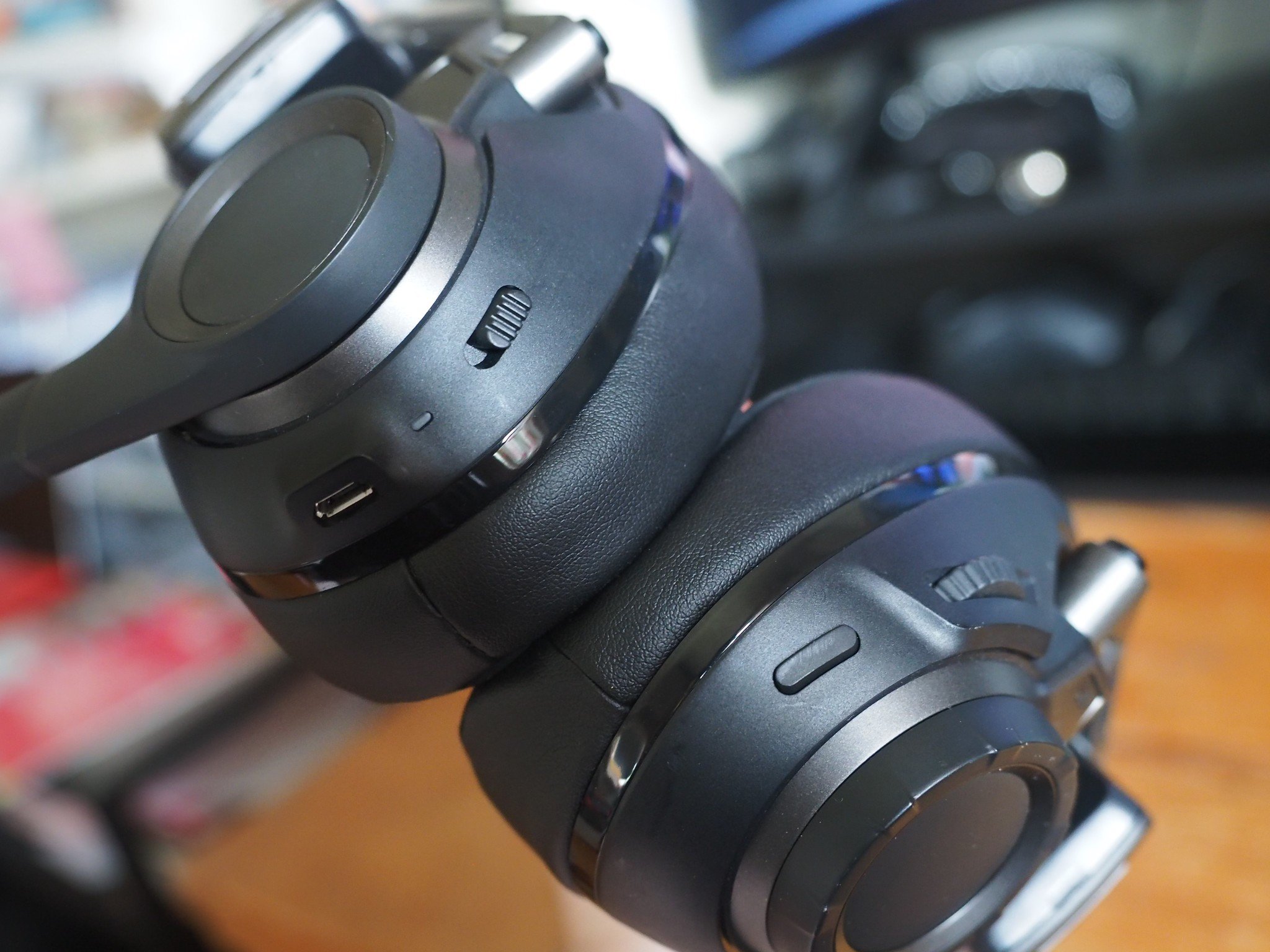
The sound quality here is by far the headlining feature. It's simply staggering across the board. But at $350, Sennheiser drops the ball in other ways.
What you'll dislike about the Sennheiser GSP 670
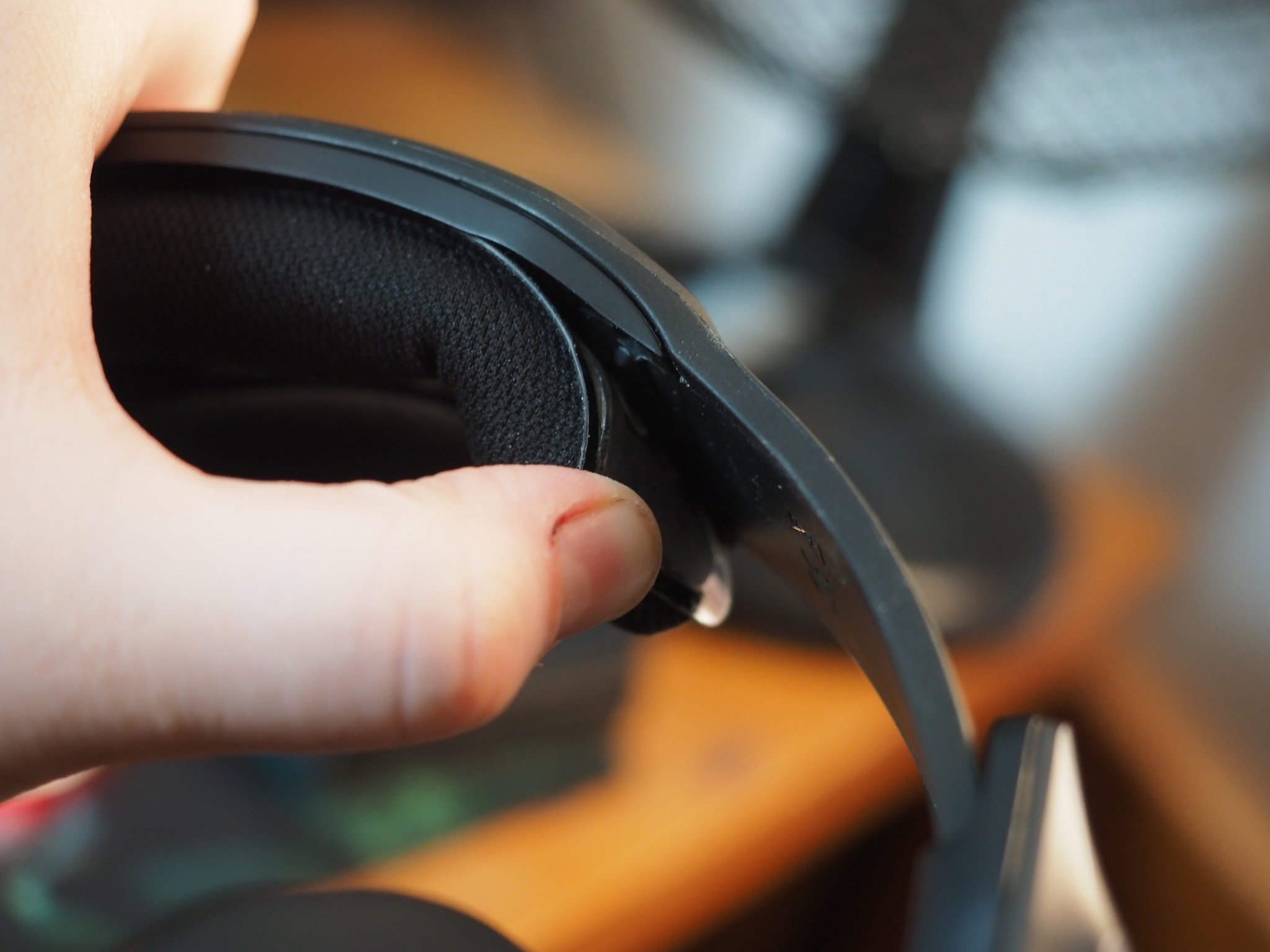
When you're spending $350 dollars on a headset, there's a level of quality one might expect. Sennheiser doesn't even come close to reaching it. Out of the box, the cushioning across the top of the headband was already coming loose, owing to unsuitably lacking adhesives. I've used $35 headsets that paid more attention to detail.
Also, they're just rather bulky for a gaming headset, which perhaps underscores Sennheiser's inexperience with this particular market. For long sessions, you'll not only want something that is comfortable and airy, but something that fits well during animated moments. I found that even with adjustments, the headset just never sat right across my head, and was prone to sliding off, or up and down. Perhaps, at least in part, this is due to a lack of friction in the choice of fabric Sennheiser opted for when choosing the cranial cushioning (you know, the cushioning that was already peeling off).
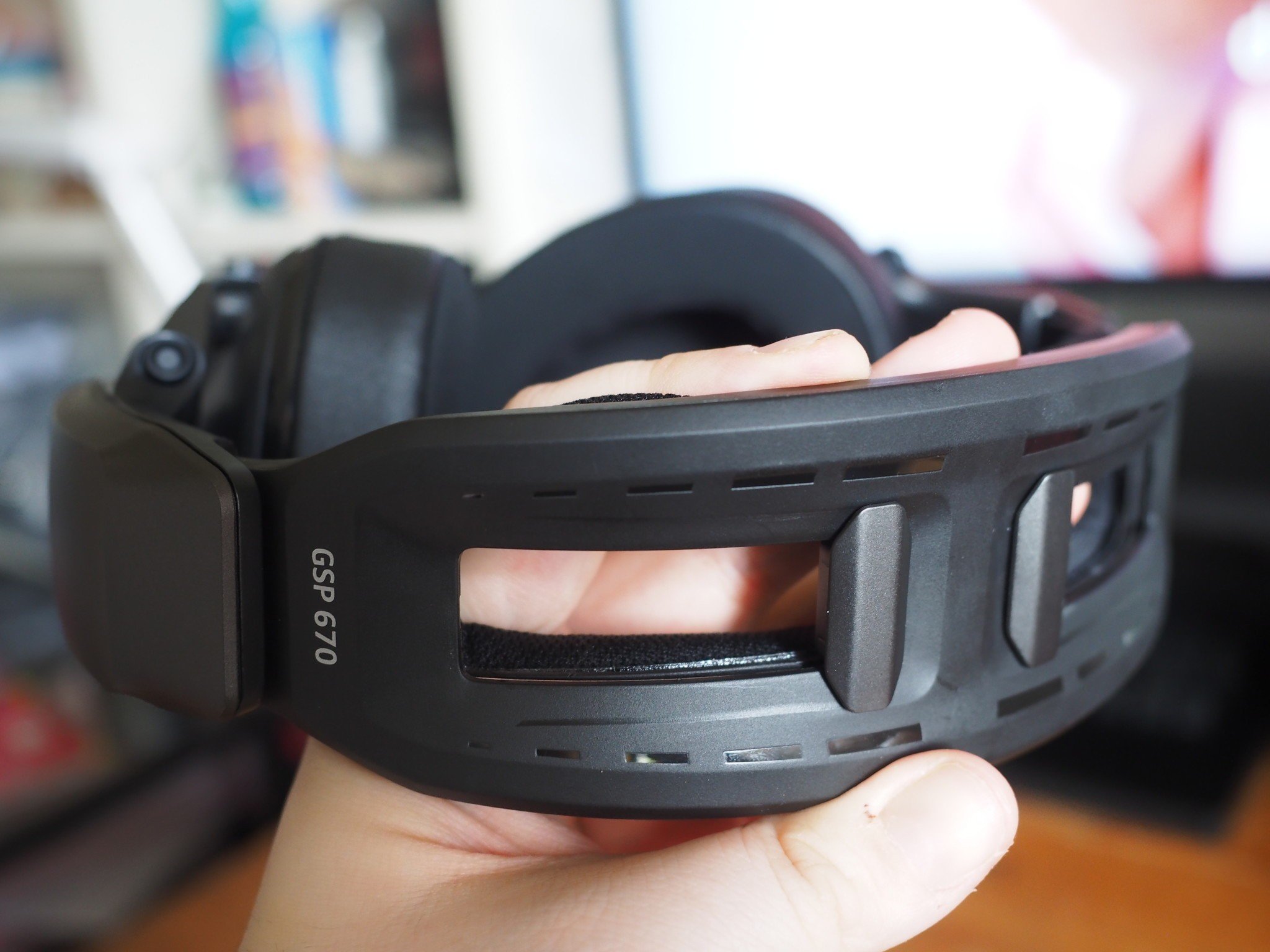
I'm not sure if it's the sheer volume of tech baked into this headset, perhaps requiring bigger-than-usual batteries, but I just found it overly cumbersome. The Plantronics RIG 800LX wireless headset boasts longer battery life while also weighing just over half as much. The LS35X weighs roughly the same amount, but it just feels more comfortable, owing to higher-quality foam. Both of these headsets cost a fraction of the Sennheiser GSP 670, which at that price should offer no compromises whatsoever.
So should you buy the Sennheiser GSP 670?

The Sennheiser GSP 670 has some of the best gaming audio in the business, with staggering distinction across the audio spectrum, a broad sound stage, and uncompromising frequency accentuation. However, it's let down in the construction department in various ways.
I shouldn't be able to sit here and say that a $99 headset like the 800LX has better build quality and is more comfortable than a $350 product, even if the $350 dollar product boasts superior sound and features. But that's just what I'm saying.
The saving grace here is the audio quality, which is incredible. However, the price point almost comes off as arrogant, with Sennheiser seeking to bank on its name rather than its quality. Audiophiles may rejoice that there's a wireless gaming headset on the market that can truly begin to approach true uncompromising versatility for use across music and gaming. At the same time, it's not unfair to demand more bang for your buck when dropping over a third of a grand on a headset.

An intriguing headset defeated by a ridiculous price point
As amazing as this 7.1 headset sounds, the $350 price point is absolutely absurd for all but the most dedicated audiophiles. And that's if you're willing to forgive its construction flaws, of which there are many.

Jez Corden is the Executive Editor at Windows Central, focusing primarily on all things Xbox and gaming. Jez is known for breaking exclusive news and analysis as relates to the Microsoft ecosystem while being powered by tea. Follow on Twitter (X) and Threads, and listen to his XB2 Podcast, all about, you guessed it, Xbox!
